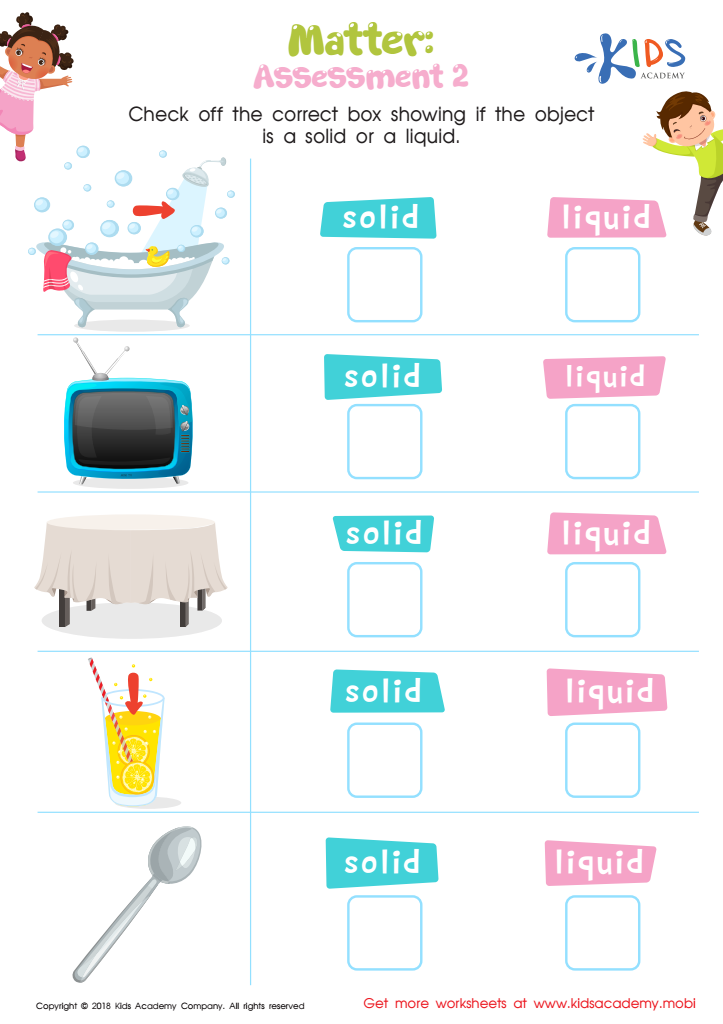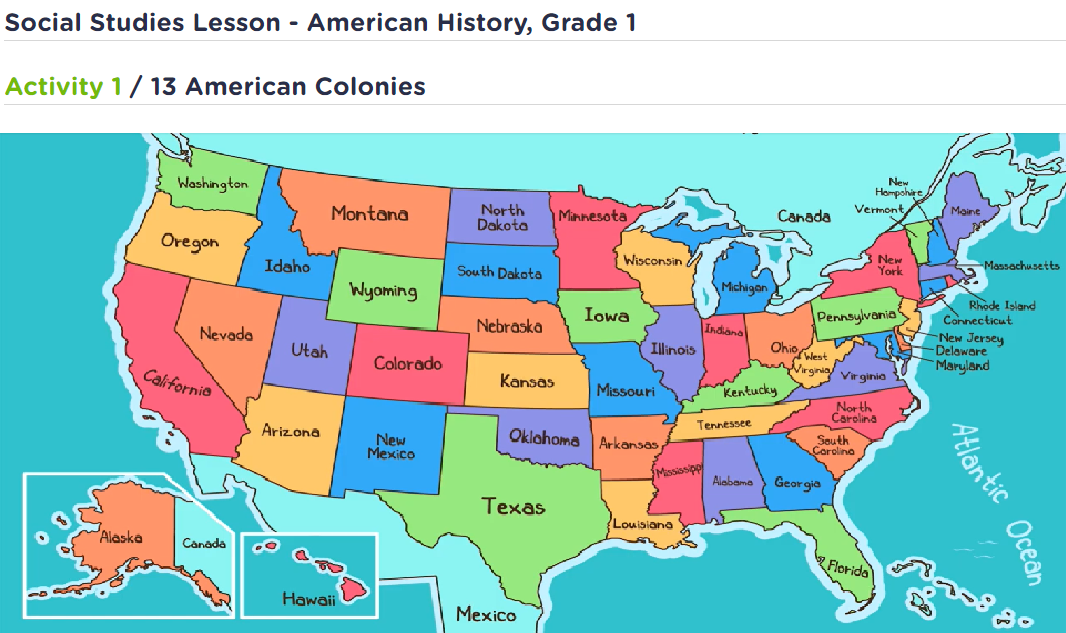Normal Science Worksheets Activities With Answers for Ages 6-8
10 filtered results
-
From - To
Explore our engaging Normal Science Worksheets Activities designed specifically for children aged 6-8. These worksheets facilitate hands-on learning experiences that enhance students' understanding of fundamental scientific concepts. Incorporating interactive exercises, our activities cover topics such as plants, animals, weather, and ecosystems, helping young learners build a solid foundation in science. Each worksheet is paired with an answer key, making it easy for educators and parents to assess and guide their child's progress. Perfect for classroom use or home study, these resources offer fun, educational opportunities to nurture curiosity and promote critical thinking skills in budding scientists. Discover the joy of learning science today!


Matter: Assessment 1 Worksheet


Force and Interactions: Assessment 1 Worksheet


Space: Assessment 1 Worksheet


Ecosystems: Assessment 1 Worksheet


Light and Sound: Assessment 2 Worksheet


Animals and Plants: Assessment 2 Worksheet


Matter: Assessment 2 Worksheet


Ecosystems: Assessment 2 Worksheet


Space: Assessment 2 Worksheet


Animals and Plants: Assessment 1 Worksheet
Parents and teachers should care about normal science activities for children ages 6-8 for several compelling reasons. First and foremost, these activities stimulate curiosity and critical thinking, laying the groundwork for scientific literacy. At this formative age, children are naturally curious, making it an ideal time to foster an interest in science through hands-on experiments and engaging challenges.
Additionally, normal science activities encourage children to explore the world around them. By participating in simple experiments or observational activities, they learn to ask questions, form hypotheses, and seek evidence, which are fundamental components of the scientific method. This not only nurtures their analytical skills but also promotes problem-solving abilities.
Moreover, integrating science into everyday learning makes education more dynamic and enjoyable. It helps children correlate classroom knowledge with real-life experiences, enhancing their understanding and retention of concepts. In turn, this boosts confidence and encourages teamwork when participating in group projects or sharing findings.
Lastly, an appreciation for science will impact children’s future educational pursuits and career choices. By engaging with normal science activities early on, parents and teachers are fostering lifelong learners who will be better equipped to tackle the challenges of tomorrow's world.

 Assign to My Students
Assign to My Students















